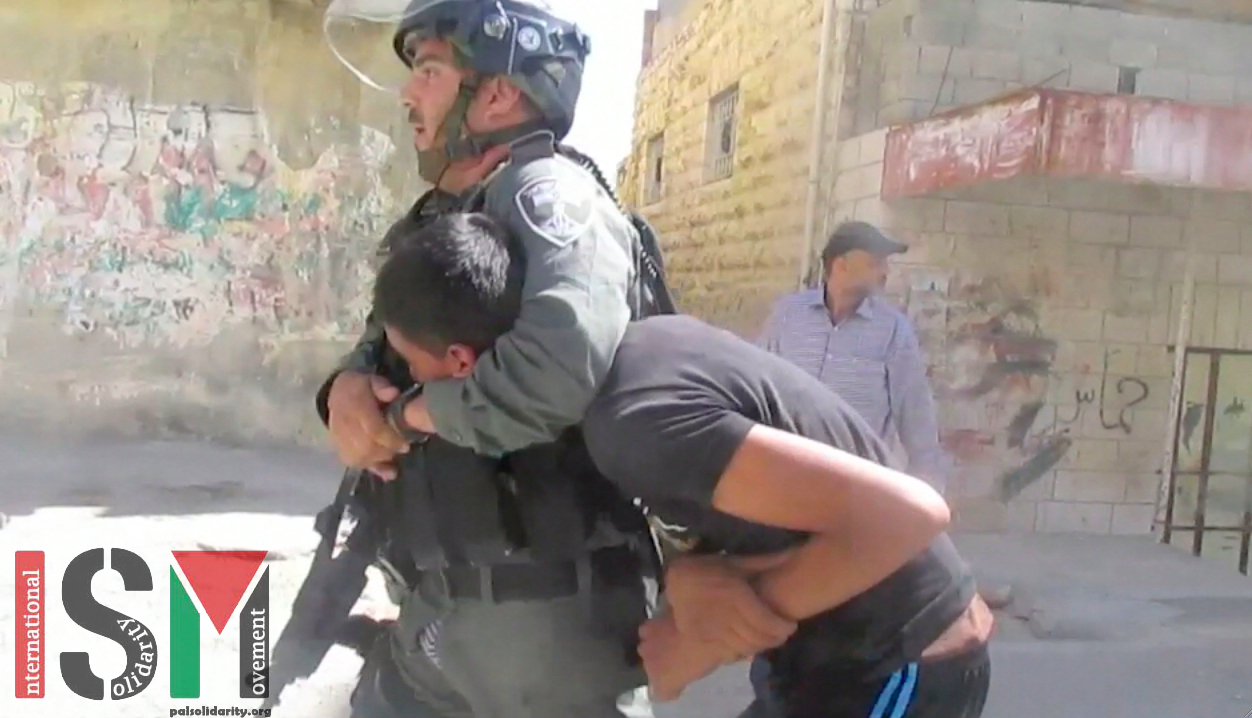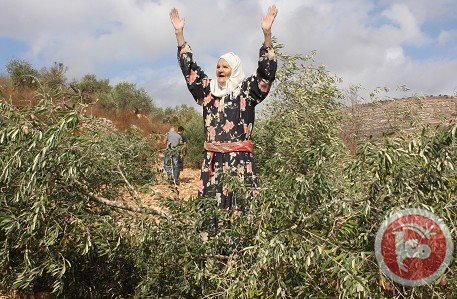Category: Reports
-
Two young Palestinians arrested and abused
24th September 2014 | International Solidarity Movement, Khalil team | Hebron, Occupied Palestine Monday afternoon in Hebron, two young Palestinian men were arrested and abused north of Qeitun after being falsely accused of stone throwing. 21-year-old Muhammad Ghaleb Abu Sbeih was walking home from work when soldiers from the Israeli military force arrested him. Six boys had…
-
VIDEO: Israeli forces arrest two children and fire 29 rounds of tear gas at schoolchildren
23rd September 2014 | International Solidarity Movement, Khalil team | Hebron, Occupied Palestine Today at Salaymeh checkpoint in Hebron, Israeli forces fired 29 rounds of tear gas and 5 stun grenades at children going to school. The morning started off peaceful as children passed through the checkpoint but as word spread that two Palestinians had been…
-
Israeli settlers sabotage the olive harvest in Awarta
23rd September 2014 | International Solidarity Movement | Awarta, Occupied Palestine On the 28th of August, around 7:00 a.m., Israeli settlers from the illegal settlement of Itamar cut down and burnt more than 30 olive trees belonging to Awarta village before the harvest. For the farmers living southeast of Nablus City, the olive trees are a basic,…



